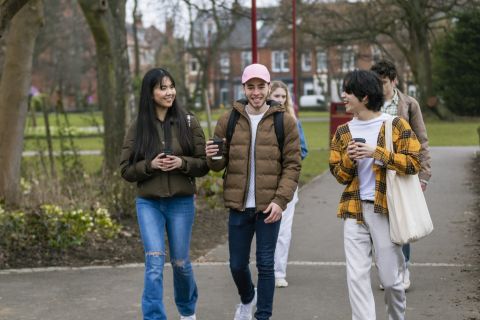Barriers and enablers to participation in youth activities
We know that young people who get involved in organised youth activities (like sports or arts clubs, uniformed groups, and youth clubs) benefit from their involvement. Our work on enrichment and enrichment offers concludes that such activities are crucial for developing skills and confidence in young people, but access to these opportunities varies significantly, especially for disadvantaged youth.
We therefore know that not all young people are involved and therefore they miss out. Working with UK Youth and a youth panel, we led a research programme exploring why that is.
We did this through:
- econometric analysis of the Youth Participation Survey, which was answered by a representative sample of nearly 2,000 young people
- follow-up interviews by phone with 74 young people
- interviews with 16 professionals from the youth sector who represented a range of organisation types and specialisms, and
- reviewing key literature.
We found that participation is associated with a range of personal characteristics. For example participation in organised youth activities drops as young people get older because their interests change, they specialise and prioritise other things including school-work. Using regression analyses we also identified a set of ‘risk profiles’ to explore which young people with particular sets of characteristics were more or less likely to participate and we found clear differences. The least likely to participate in any youth activities were young women aged 16-19 years, living in a deprived area and receiving free school meals – just 26% were estimated to be participating.
The research also found a range of barriers and enablers that affect whether or not young people get involved in youth activities. Some of these reflected their own attitudes, psychology and relationships. Others were practical (such as cost, distance to travel and timing). Therefore approaches to encourage more young people to get involved need to address both the practical and the emotional barriers – because addressing the practical barriers alone are necessary but not sufficient measures for young people to change behaviours. When we asked young people what would make that difference they often referenced ways to help them cross the threshold – taster sessions, open days, meeting youth workers in familiar places first, and better more complete information about what to expect.
The report has been launched by the Department for Culture, Media and Sport and can be found here: https://www.gov.uk/government/publications/barriers-and-enablers-to-participation-in-youth-activities-research
The work aligns with the Government’s mission to ‘Break Down Barriers to Opportunity’. It has been used to inform the forthcoming National Youth Strategy.
For further information regarding SQW’s work on the study, please contact Jo Hutchinson via jhutchinson@sqw.co.uk.

